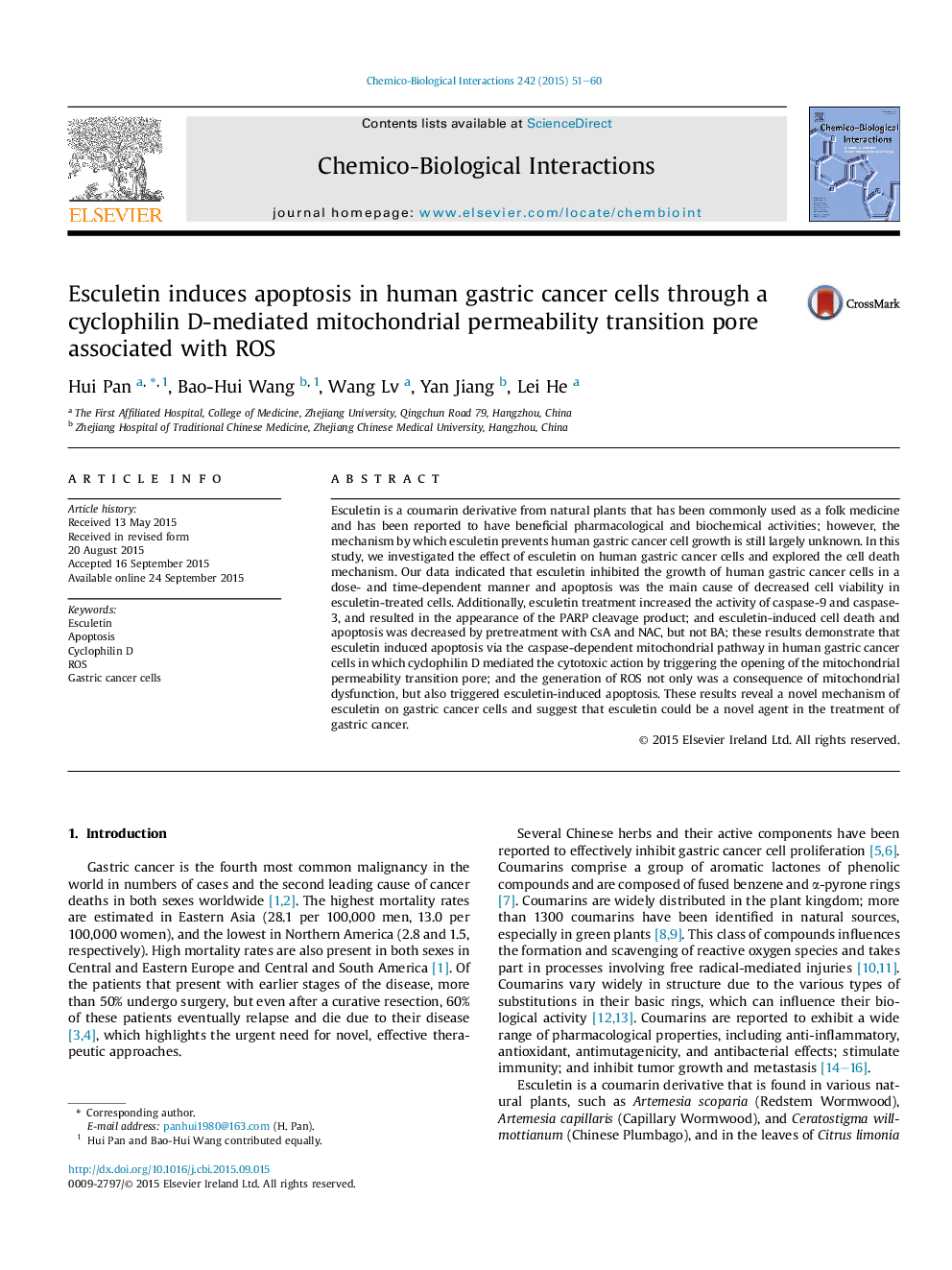| Article ID | Journal | Published Year | Pages | File Type |
|---|---|---|---|---|
| 2579956 | Chemico-Biological Interactions | 2015 | 10 Pages |
•Esculetin induced apoptosis via the caspase-dependent pathway in human gastric cancer cells.•Esculetin-induced apoptosis is mediated through the mitochondrial pathway.•Cyclophilin D mediated the cytotoxic action by triggering the opening of the mitochondrial permeability transition pore.•Esculetin-induced apoptosis is dependent on ROS accumulation.
Esculetin is a coumarin derivative from natural plants that has been commonly used as a folk medicine and has been reported to have beneficial pharmacological and biochemical activities; however, the mechanism by which esculetin prevents human gastric cancer cell growth is still largely unknown. In this study, we investigated the effect of esculetin on human gastric cancer cells and explored the cell death mechanism. Our data indicated that esculetin inhibited the growth of human gastric cancer cells in a dose- and time-dependent manner and apoptosis was the main cause of decreased cell viability in esculetin-treated cells. Additionally, esculetin treatment increased the activity of caspase-9 and caspase-3, and resulted in the appearance of the PARP cleavage product; and esculetin-induced cell death and apoptosis was decreased by pretreatment with CsA and NAC, but not BA; these results demonstrate that esculetin induced apoptosis via the caspase-dependent mitochondrial pathway in human gastric cancer cells in which cyclophilin D mediated the cytotoxic action by triggering the opening of the mitochondrial permeability transition pore; and the generation of ROS not only was a consequence of mitochondrial dysfunction, but also triggered esculetin-induced apoptosis. These results reveal a novel mechanism of esculetin on gastric cancer cells and suggest that esculetin could be a novel agent in the treatment of gastric cancer.
Graphical abstractFigure optionsDownload full-size imageDownload as PowerPoint slide
